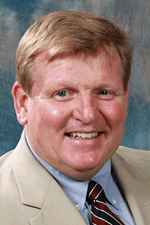Modeling and Inspiring Stewardship
Sharing in All Things
“Now the multitude of those who believed were of one heart and one soul; neither did anyone say that any of the things he possessed was his own, but they had all things in common. And with great power the apostles gave witness to the resurrection of the Lord Jesus. And great grace was upon them all. Nor was there anyone among them who lacked; for all who were possessors of lands or houses sold them, and brought the proceeds of the things that were sold, and laid them at the apostles’ feet; and they distributed to each as anyone had need. And Joses, who was also named Barnabas by the apostles (which is translated Son of Encouragement), a Levite of the country of Cyprus, having land, sold it, and brought the money and laid it at the apostles’ feet” (Acts 4:32–37 NKJV).
In the early church, there was an exciting fervor of stewardship that captivated the believers. This passage of Scripture reveals that many, including Barnabas, caught this passion and realized it within his congregation and outwardly to his community. His generosity was not only exemplary, inspirational, and a blessing to others, it earned him the name, the “Son of Encouragement” or “Son of Consolation” (i.e., parakletos in Greek) from the church apostles and leaders. Barnabas had discovered and embraced the truth that God blesses us so that we might be a blessing.
Maybe he learned this from King David who demonstrated this truth through his extravagant giving for the construction of the Temple. Indeed, David not only modeled giving; but, he also inspired it, as his subordinates followed his example. David also acknowledged that it is God who is the source of our blessings and that our giving is not really from our resources; but, from those resources from which God has blessed us. We, then, are stewards of these gifts and are therefore channels of His blessings toward others (1 Chronicles 29:1–20).
So, we must ask ourselves, “What is our attitude toward giving?” If it is legalistic, then we overlook the more important issues of justice and God’s love as the religious of Jesus’ day (Luke 11:41, 42). The apostle Paul said that giving should be a cheerful attitude and action on our part (2 Corinthians 9:6–15) which ultimately blesses both the beneficiary and the benefactor. Paul put words and actions together when he used his own personal resources to help his new friend, Onesimus, who was in trouble with his old friend, Philemon (Philemon 17, 18). Paul modeled, informed, and emphasized to the church at Ephesus that Jesus said that, “It is more blessed to give than to receive” (Acts 20:34, 35), which is very counterintuitive to the present ethos of this world where everything centers on the individual.
The Bible is replete with this theme of being good stewards to bless others. The Good Samaritan used his resources on a wounded stranger and someone who would likely not have returned the favor (Luke 10:25–37); yet, he had mercy and compassion on this wounded man. Boaz had his servants leave behind “handfuls on purpose” of grain for a poor, destitute widow, named Ruth, who he would later have as his future bride (Ruth 2:15–17). Jesus illustrated that when we give of ourselves to help others, we are truly doing this action to Him personally (Matthew 25:35–40). Perhaps, we should imagine seeing the face of Christ each time that we are presented with an opportunity to help someone else with our resources; as we truly seek out opportunities where we can help with our resources and respond as we are able (Galatians 6:10).


